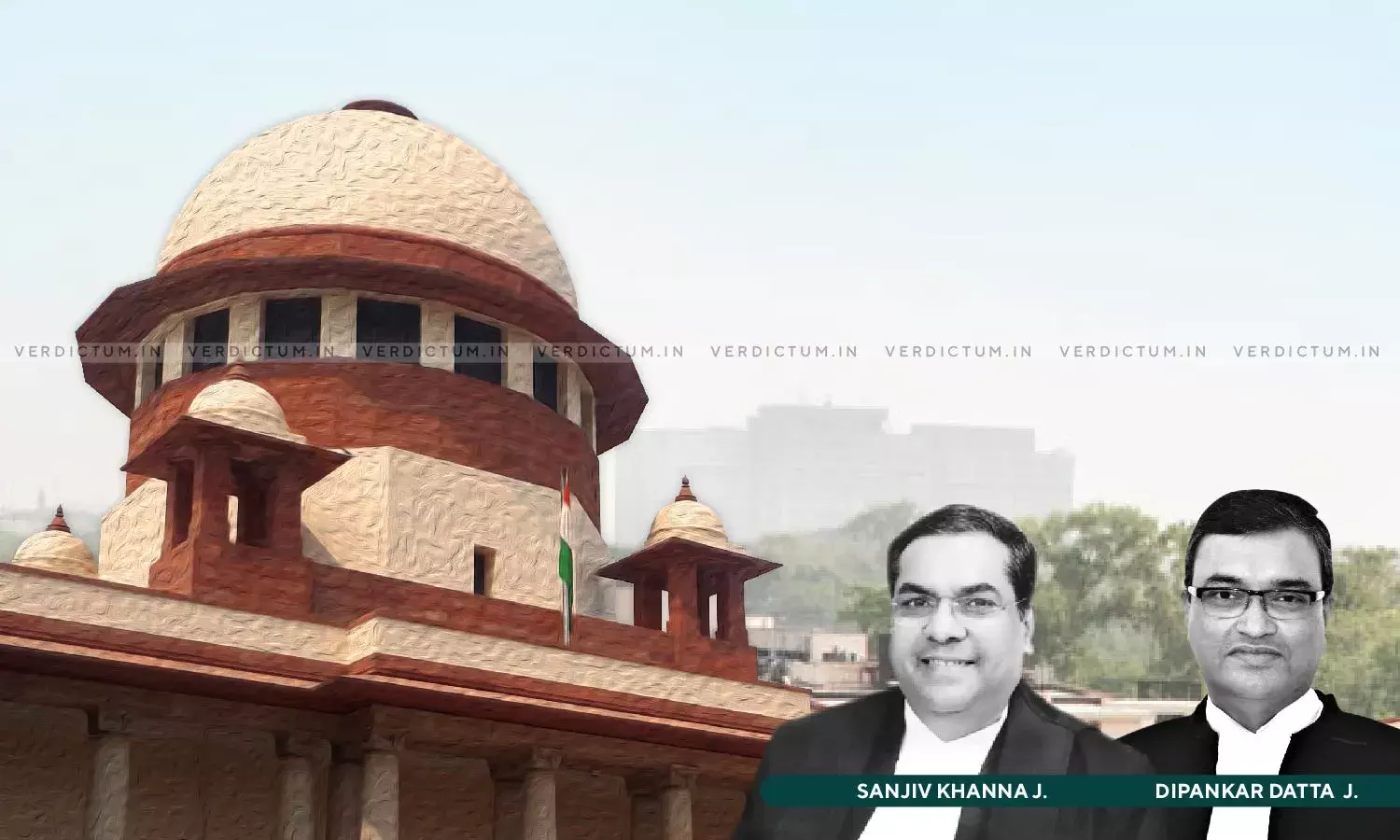Stridhan Gifted To Woman Is Her Absolute Property; Husband Has No Control Over It: Supreme Court

The Supreme Court observed that gifts made to the bride by the bride’s husband or her parents or by relatives from the side of her husband or parents, at the time of marriage, constitute her stridhan.
The Court noted that the husband has no control over her stridhan property. He may use it during the time of his distress but nonetheless he has a moral obligation to restore the same or its value to his wife, it said.
The Bench ordered a husband to pay Rupees 25 lakhs in compensation to the wife towards the recovery of her wedding jewellery constituting ‘Stridhan’, which was allegedly misappropriated by the husband.
Justice Sanjiv Khanna and Justice Dipankar Datta observed, “The High Court, thus, failed to draw the right inference from facts which appear to have been fairly established. That apart, we have neither been shown nor do we know of any binding precedent that for a claim of return of stridhan articles or money equivalent thereof to succeed, the wife has to prove the mode and manner of such acquisition. It was not a criminal trial where the chain of circumstances had to be complete and conclusively proved, without any missing link.”
AOR Harikumar V. represented the appellant, while Advocate Boby Augustine appeared for the respondents.
The wife had filed a petition before the Family Court seeking recovery alleging that the husband took custody of the jewellery gifted to her by her parents under the garb of safekeeping. The Family Court dissolved the marriage between the parties and entitled the wife to recoup the loss caused to her by the said misappropriation.
Upon appeal, the High Court partially set aside the relief granted stating that the wife failed to provide documentary evidence to prove the misappropriation of her stridhan and remanded the matter to the family court.
The Supreme Court reiterated the legal principle laid down in Rashmi Kumar v. Mahesh Kumar Bhada (1997) 2 SCC 397 holding that the properties gifted to a woman before marriage, at the time of marriage or at the time of bidding of farewell or thereafter were considered as stridhan properties. It was further explained that a husband had no control over such stridhan property.
“He may use it during the time of his distress but nonetheless he has a moral obligation to restore the same or its value to his wife. Therefore, stridhan property does not become a joint property of the wife and the husband and the husband has no title or independent dominion over the property as owner thereof,” the Court explained.
Therefore, the Court called the High Court's decision "legally unsustainable," attributing it to an erroneous approach that demanded a standard of proof “as if it were seized of a criminal trial” for demonstrating the husband's misappropriation of his wife's jewellery. The Court noted that the High Court's findings were founded on "assumptions and suppositions."
“Mere upholding of the decree of the Family Court at this distance of time, without anything more, would bring about injustice to her. Bearing in mind the passage of time, the escalation in cost of living, and in the interest of equity and justice, we deem it fit in exercise of power conferred by Article 142 of the Constitution of India to award to the appellant a sum of Rs 25,00,000/,” the Court ordered.
The Court clarified that in civil cases including matrimonial disputes of a civil nature, the standard of proof is not proof beyond reasonable doubt ‘but’ the preponderance of probabilities tending to draw an inference that the fact must be more probable.
Accordingly, the Supreme Court modified the decree of the family court and allowed the appeal to the extent.
Cause Title: Maya Gopinathan v. Anoop S.B. & Anr. (Neutral Citation: 2024 INSC 334)
Appearance:
Appellant: AOR Harikumar V.; Advocates Anupam Mishra and Rajnandini
Respondents: Advocates Boby Augustine, Iram Naaz, Nitin, Vishnu Shankar M., Sriram P. and Athira G. Nair
Click here to read/download the Judgment

